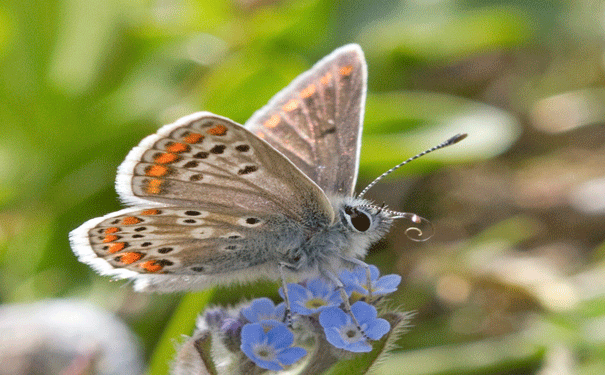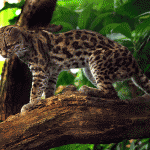
Brown Argus butterfly. Image: Keith Warmington
Some species will suffer from climate change while others will thrive — it all depends on their interactions with other species.
A delicate little butterfly with orange spotted wings called the Brown Argus (Aricia agestis) is only found in the UK and was once a very rare and sedentary species. But over the past few decades it has been spreading further north and thriving in response to a warmer climate, UK researchers reported in a study published in Science.
Historically, the Brown Argus only laid its eggs on a specific host plant called Rockrose, but warmer conditions over the past 20 years have led to the butterfly colonising more widespread plant types such as Geranium species.
“We think the Brown Argus was previously restricted to using Rockrose because it grows in places with warm microclimates (short turf on southerly-facing slopes) and therefore was suitable when conditions were particularly cool,” said Rachel Pateman from the University of York and lead author of the study. “Geranium species, however, tend to grow in cooler places and so were unsuitable for the Brown Argus when the climate was cooler. As temperatures have increased we think the locations where Geraniums grow have now become warm enough for the butterfly.”
The researchers used records of the Brown Argus and its host plants that had been collected between 1975-2009. “There will be winners and losers from climate change,” said Pateman. “One factor that will affect the ability of species to respond to climate change is interactions with other species. We have shown how changes in interactions — a butterfly with its host plants — have helped a species to respond to climate change.”
According to Frank Seebacher from the University of Sydney these findings should be considered a starting point or hypothesis for further testing. He said there are currently few studies that look at measuring the effect of climate on species interaction, but thinks it will become an important area of research in the future.
The researchers explained that it is vital for all species to adapt and shift their ranges during changes in the climate. If not, they risk extinction. “It is important that we identify the factors that affect the ability of species to shift their distributions so we can work out which species are most at risk and require conservation effort,” said Pateman.
Source: EurekAlert






